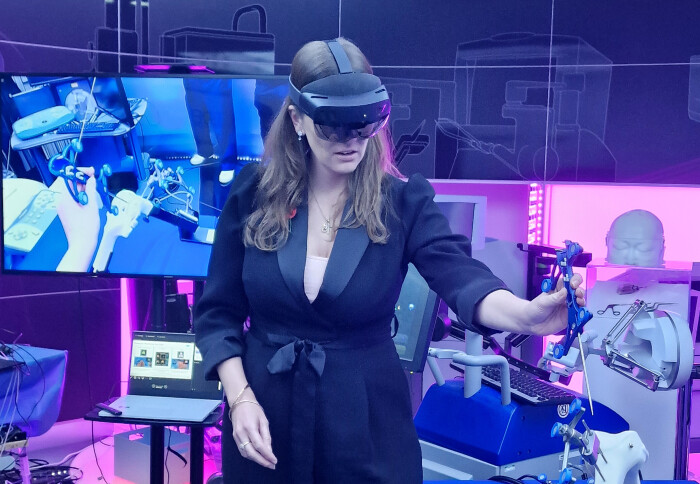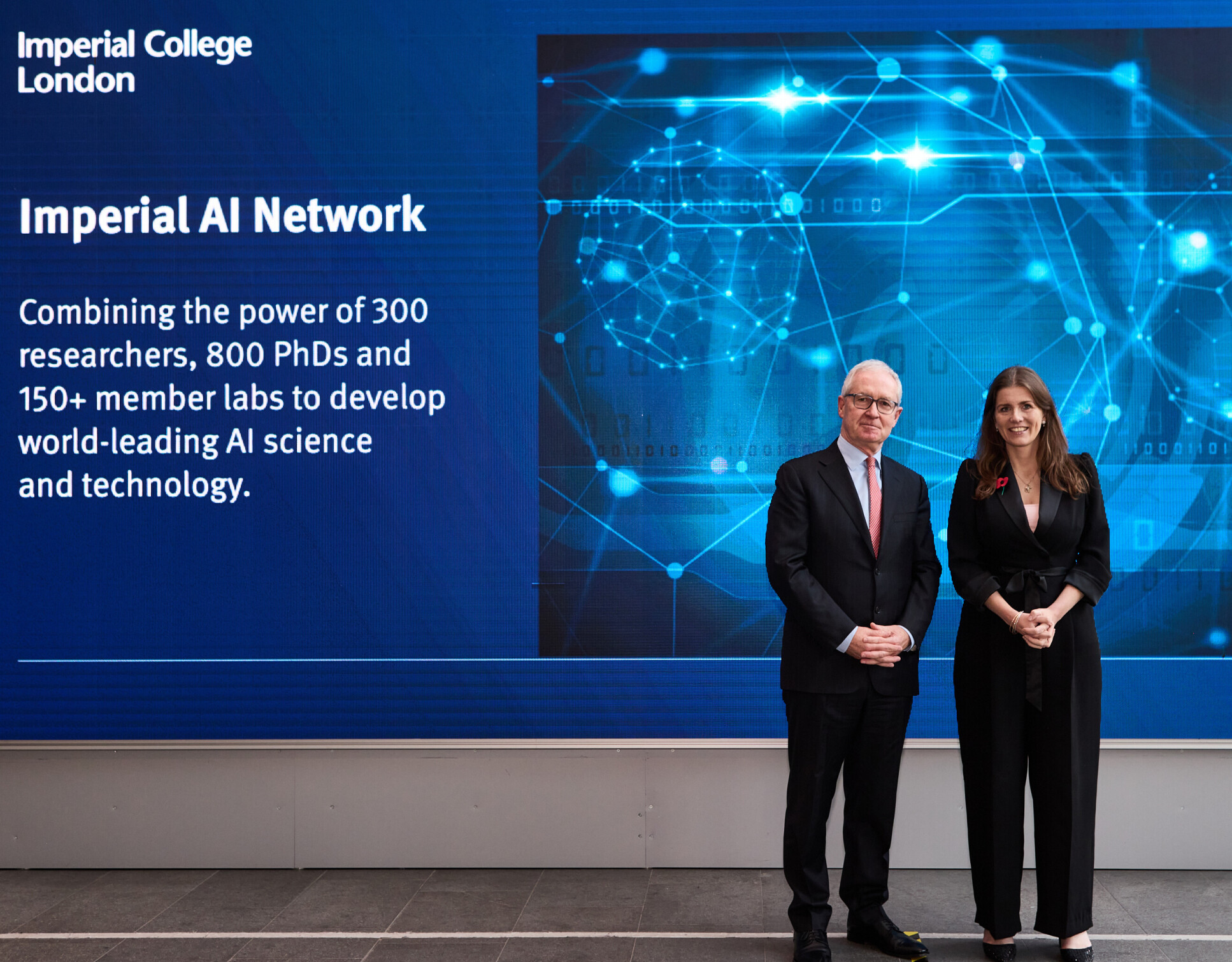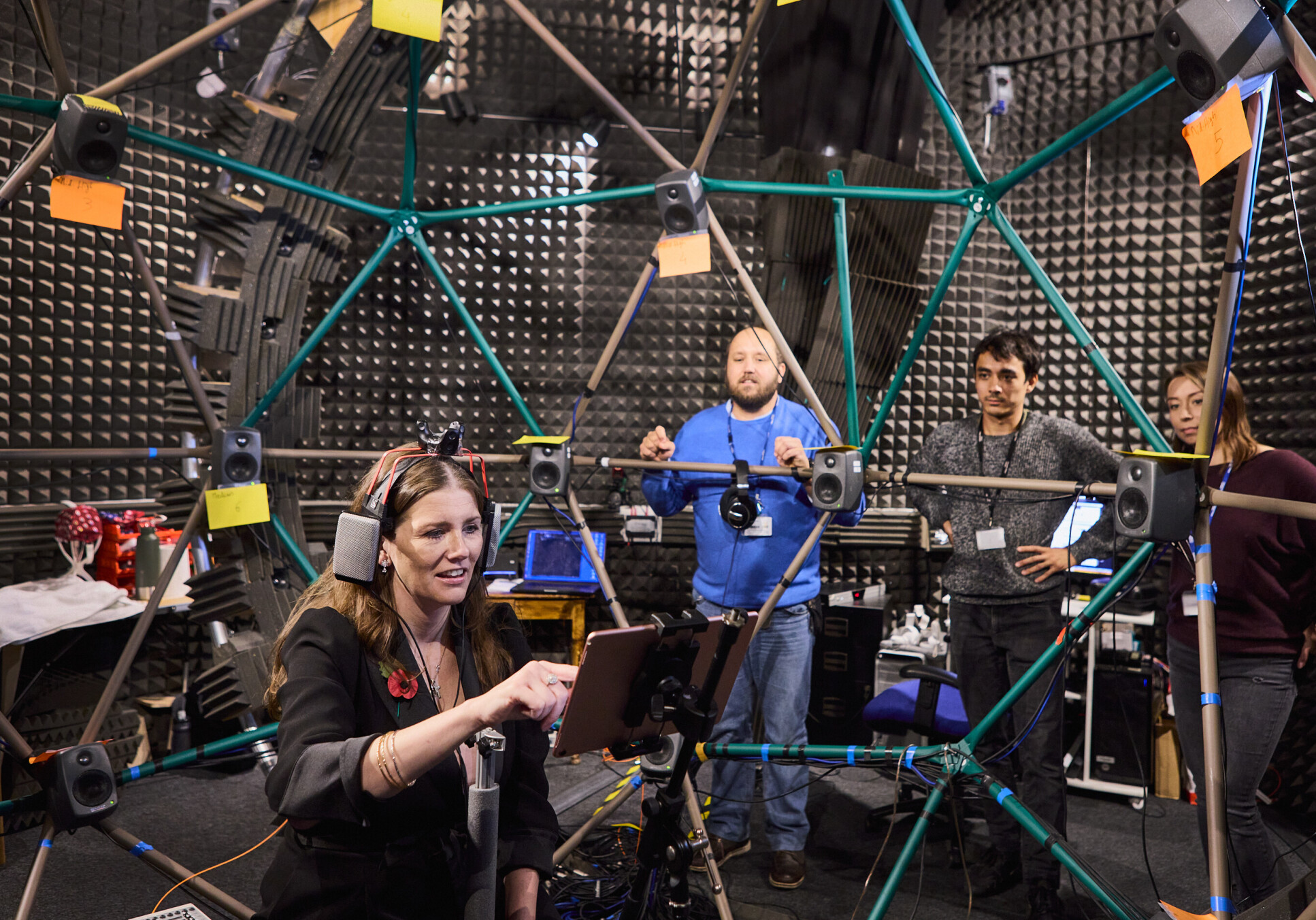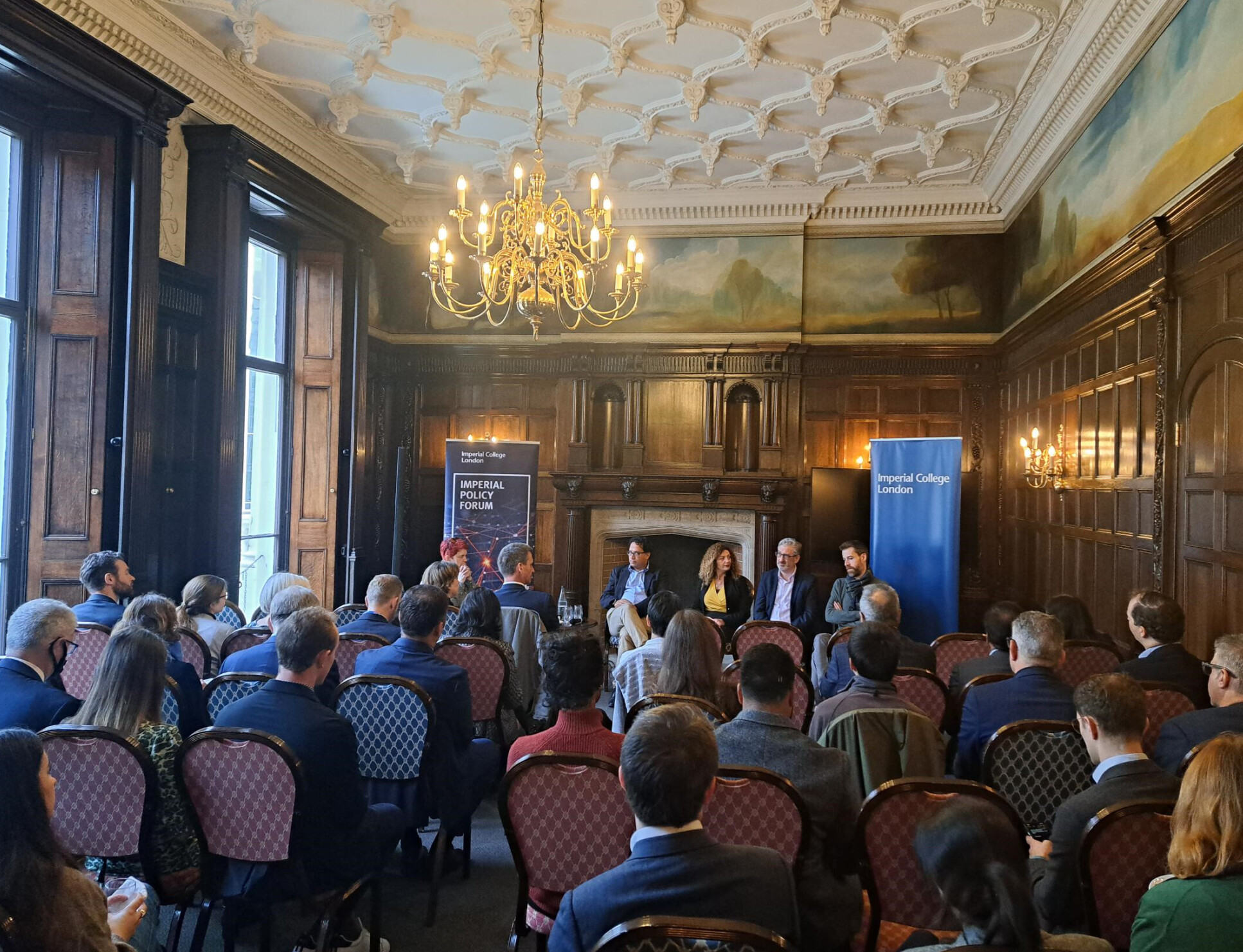Science Secretary sees AI and health technologies at Imperial ahead of AI summit

The Science and Technology Secretary Michelle Donelan MP has visited Imperial this week to learn about AI and health research.
The Secretary of State for Science, Innovation and Technology, Michelle Donelan MP, visited Imperial this week to see cutting-edge technologies that utilise AI in Health. The visit came ahead of the Government’s global AI Summit on 1 and 2 November and followed a programme of Imperial-facilitated events in the lead up to the Summit. This included partnering with Westminster think tank Onward to host the Secretary of State's speech that set out the government's approach to AI regulation ahead of the Summit and welcoming policymakers, businesses and industry representatives to hear from Imperial academics on how we can enable AI-driven innovation. Imperial's AI4Health (UKRI Centre for Doctoral Training in AI for Healthcare) also hosted a fringe event with our AI network and global experts to showcase our hands-on AI tech.

Science, Innovation and Technology Secretary at Imperial
Hosted by Imperial’s President, Professor Hugh Brady, the Secretary of State met Professor Aldo Faisal, Professor of AI and Neuroscience, UKRI Turing AI Fellow and Director of the new UKRI AI Centre for Doctoral Training in Digital Healthcare that was announced on the same day. He explained how the Centre will make critical contributions to the UK AI skills base.
Professor Ferdinando Rodriguez y Baena, Co-Director of Hamlyn Centre, Professor of Medical Robotics demonstrated state-of-the-art AI knee replacement where the surgical user-interface is in a mixed-reality environment and discussed how this technology is adapted in the NHS.
Dr Lorenzo Picinali, Reader in Audio Experience Design, and Dr Katarina Poole, PDRA, at the Dyson School of Design Engineering, showcased how AI can be used to support teenage cochlear implant users.

UK AI Safety Summit
Last week the Secretary of State set out the aims of the UK’s AI Safety Summit at a speech hosted by Imperial and the think-tank Onward in Westminster. She said the purpose of the Summit was to find agreement on where the key risks of frontier AI are and to begin a global conversation on how they can be managed. Domestically, she said that the UK's approach was intended to be agile, targeted and sector specific - acknowledging that the AI use cases are very different across different sectors.
Introducing the Secretary of State, Professor Mary Ryan, Vice Provost (Research & Enterprise), said that policymakers should focus on future regulation 'enabling' AI rather than 'policing' it.
Enabling AI-driven innovation
Imperial also hosted an event for policymakers and industry, 'Enabling AI driven innovation' as part of a wider set of 'AI Fringe' events organised around the Summit.
The event, chaired by Professor Mary Ryan, featured two panels of leading experts. The first panel, featuring Professor Aldo Faisal, Dr Yves-Alexandre de Montjoye, Associate Professor of Applied Mathematics and Computer Science, Dr Rosella Arcucci, Elected Speaker for the Imperial AI Network, and David Shrier, Professor of Practice, AI & Innovation at Imperial Business School discussed the risks of generative AI on the labour market and online safety. They also discussed opportunities that AI poses, especially in the fields of climate science and healthcare.
The second panel, featuring Professor Rafa Calvo, Professor at the Dyson School of Engineering, Professor Alessandra Russo, Professor of Applied Computational Logic, Dr Saira Ghafur, Lead for Digital Health, IGHI, and Michael Wicker, Assistant Professor in the Department of Computing, discussed how to integrate AI in our society and economy in a way that was both safe and equitable, through mitigating algorithmic bias in models and ensuring that the data models were trained on was representative of society.
These discussions informed an Imperial Statement on AI-Driven Innovation which you can see here.

AI at Imperial
Imperial’s AI Network brings the combined power of nearly 300 researchers and 800 PhD/postdocs from across all our faculties and disciplines to accelerate the safe and productive development and deployment of AI.
Imperial-X (I-X) brings together 100 researchers and over 30 new research projects in AI and innovation. I-X combines Imperial’s?strengths in both foundational and applied AI to address interdisciplinary challenges and support novel industrial collaborations. The global significance of I-X has been recognised by its inclusion in the Schmidt Futures Fellowship programme.
The science of data, how it is collected, curated, owned, and utilised is critical to the development of Large Language Models (LLMs). Imperial’s Data Science Institute provides foundational expertise in data science and engineering.
Imperial is developing and supporting the next generation of AI skills. We host the UKRI Centre for Doctoral Training in AI for Healthcare and partner in the UKRI Centre for Doctoral Training in Safe and Trusted AI.
Our AI ecosystem is further strengthened by our UK and global research collaborations such as the Leverhulme Centre for Future Intelligence and with industry leaders such as GSK, Thomson Reuters and Amazon Web Services.
Imperial is at the heart of global collaborations with industry, non-profit and research institutions, and is proud to have supported AI-based start-ups across a range of sectors including healthcare and drug discovery energy systems, autonomous vehicles, financial services and education technologies.
Article text (excluding photos or graphics) © Imperial College London.
Photos and graphics subject to third party copyright used with permission or © Imperial College London.
Reporter
Pete Ford
College Headquarters
Lauren Asplin
College Headquarters
Lisa Bungeroth
College Headquarters